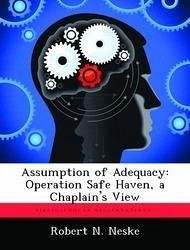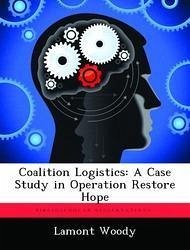
Assumption of Adequacy: Operation Safe Haven, a Chaplain's View
Versandkostenfrei!
Versandfertig in über 4 Wochen
52,99 €
inkl. MwSt.

PAYBACK Punkte
26 °P sammeln!
This study is an investigation of a little known Humanitarian Assistance, Military Operation Other Than War, Operation Safe Haven. This operation took place from 8 September 1994 to 15 March 1995 in the Republic of Panama. The purpose of the operation was to relieve the overcrowded migrant camps at Guantanamo Naval Base by establishing four camps on Empire Range, Panama, to provide a safe haven for up to ten thousand Cuban migrants. These were migrants who had attempted to enter the United States illegally by crossing the Florida Straits in boats and rafts during the summer of 1994. This study...
This study is an investigation of a little known Humanitarian Assistance, Military Operation Other Than War, Operation Safe Haven. This operation took place from 8 September 1994 to 15 March 1995 in the Republic of Panama. The purpose of the operation was to relieve the overcrowded migrant camps at Guantanamo Naval Base by establishing four camps on Empire Range, Panama, to provide a safe haven for up to ten thousand Cuban migrants. These were migrants who had attempted to enter the United States illegally by crossing the Florida Straits in boats and rafts during the summer of 1994. This study is a history of that event. Operation Safe Haven was a response to a crisis in the immigration policies of the United States. Like many other events in the life of the nation, Operation Safe Haven began with the very best of intentions, and like so many other events in life of the nation failed because the best of intentions cannot change the reality of a situation. This study focuses on the role of the Chaplaincy in the course of Operation Safe Haven, and the overriding approach the Chaplaincy takes to missions of this kind. The study examines the events leading up to the crisis in the U.S., Cuba, Haiti, and Panama; the operation itself; and the ministry conducted by the Ministry Teams assigned to the camps. The study proposes that operations, such as this, reveal that the Chaplaincy can no longer assume that the religious support provided in response to a given mission will always be adequate. Rather, that operations, such as Safe Haven, require that the Chaplaincy become more deliberate and intentional in its planning, and in it's overall approach to ministry. This study recommends that the way to implement intentionality of ministry is for the Chaplaincy to be integrated into the military decision making process. It also calls for the development of chaplain doctrine as it relates to civilians both on the battlefield and in humanitarian assistance/peacekeeping operations.














